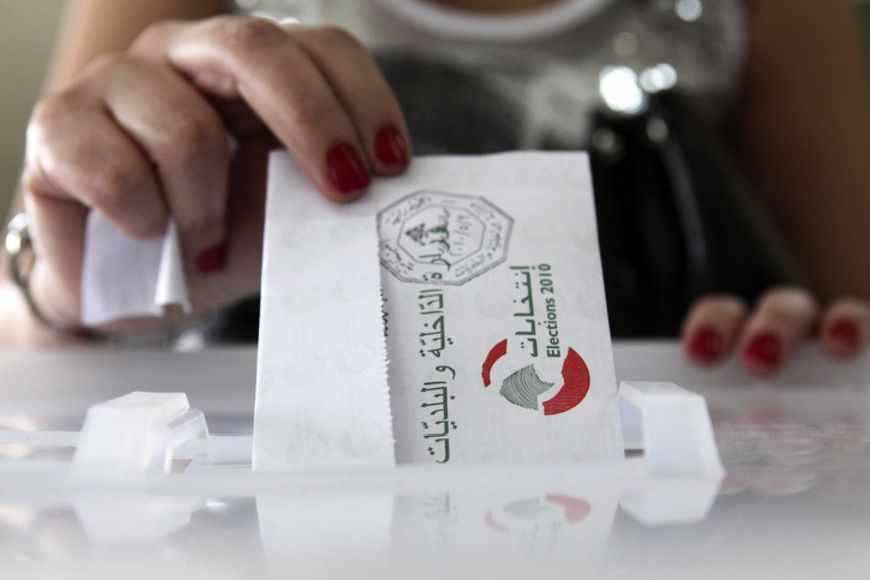Beirut, Bekaa-The first round of Lebanon’s municipal elections was held on Sunday in the first such polls organized by the Interior Ministry in six years.
Interior Minister Nuhad al-Mashnouq oversaw the polls held in the capital Beirut and the eastern Bekaa Valley from the central operations room at his ministry.
The first day of the elections, which are set to span four weeks, did not witness any security problems but was marred by a low 18 percent voter turnout in Beirut, a 3 percent drop from the municipal polls of 2010.
The Lebanese parliament has extended its term twice in the past three years under the excuse that growing political differences would lead to security problems.
After seeing the low turnout, the political leaders, who are backing the “Beirutis’ List,” urged voters to cast their ballots before the closure of the polling stations at 7:00 pm. The same move was made by members of the rival “Beirut Madinati” list.
Lebanese Forces leader Samir Geagea said that “the level of participation in Beirut is not acceptable.”
“But this should not frustrate us,” he added.
The head of the Change and Reform parliamentary bloc, MP Michel Aoun, also criticized the low turnout.
He urged citizens to vote en masse no matter what their choices are.
“We always hear citizens complaining about the deficiency in the work of municipalities at a time when they reject to vote,” said Aoun. “We encourage them to cast their ballots so that we learn about their opinion even if they have choices different than ours.”
The Future Movement-backed “Beirutis’ List” will likely score a victory in the 24-member Beirut municipal council despite being faced by “Beirut Madinati,” a grass-roots secular coalition of academics, artists, technocrats, engineers and activists.
The “Beirutis’ List” includes mainly members from the March 14 alliance and also from the March 8 coalition that is backed by Iran and the Syrian regime, although the so-called Hezbollah did not nominate any representative.
As for the eastern Bekaa Valley, it also witnessed calm elections although being close to Syria, which is engulfed in turmoil.
Unless what expected, the polls in the northeastern border town of Arsal -whose outskirts are controlled by gunmen and which has a large number of Syrian refugees- did not witness any security breaches.
Only limited disputes erupted in the mainly Christian city of Zahle as a result of the stiff competition between a list backed by political parties and two separate lists of influential families.
A previous decision taken by the Interior Ministry to postpone the polls in the two Bekaa towns of Jdita and Hawsh al-Harima and a bomb discovered on a road in the area of Chtoura on Saturday did not stop voters, whose turnout reached 42 percent, from casting their ballots in Sunday’s polls.
Informed sources told Asharq Al-Awsat that the army implemented a “very precise security plan, deploying more than 2,150 personnel inside the town of Arsal and on the border to stop gunmen from infiltrating the barren terrain and disrupting the polls.”
As for the city of Baalbek, which is the stronghold of the so-called Hezbollah, the competition was limited to a list backed by the group and another one supported by Future Movement.
Polls for the remaining governorates are scheduled for May 15, 22 and 29.
